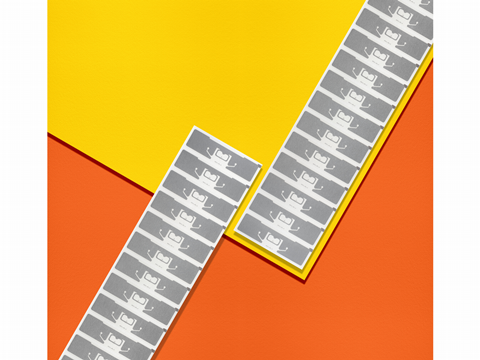
Avery Dennison has announced AD Dogbone and AD Squarewave as its first industrial Ultra High Frequency (UHF) Radio Frequency Identification (RFID) inlays and tags to feature the Impinj M830 chip, designed for maximum performance in a range of automotive, logistics, and industrial environments.
The next generation variant is said to offer stronger global performance compared to previous models. The company says AD Dogbone M830 retains its 94 x 24mm antenna footprint and includes a 97 x 27mm form factor at a 1.18” pitch. Ideally suited for the tagging of automotive and logistics items, its main applications include inventory, supply chain management, and Returnable Transit Items (RTIs).
Avery Dennison states the AD Squarewave M830 retains its 93 x 11mm antenna footprint. With a 97 x 15mm form factor at a 0.78” pitch, it is designed to accommodate the tagging of items in the logistics and automotive segments.
Its main applications include home essentials, inventory, and supply chain management. It apparently offers reliable reading of tags at high volume and speed, supporting global Internet of Things (IoT) deployments.
Mathieu De Backer, vice president of Innovation and Sustainability at Avery Dennison Smartrac, says: “Our leading design expertise and advanced manufacturing process, coupled with the technology of the Impinj M800 chip family, reaffirms our inlays and tags as innovation drivers among industrial environments. Crucially, this exciting development enables high speed readings, allowing our clients to devote more time to key business priorities.”
Earlier this year, Avery Dennison partnered with digital platform provider for pharma supply chains, Controlant, to bring to market the Saga Card, a compact monitoring device that apparently extends visibility further into the pharma supply chain. When combined with Controlant’s Aurora cloud platform, the device provides real-time inventory visibility at country, region, and city levels to pharma companies, packaging providers, and logistics companies serving the pharma industry.
As part of our sponsored Spotlight content, Checkpoint Systems explained in June how RFID tags can help companies reach sustainability goals by boosting Reduce, Recycle and Reuse. The company stated that the use of RFID tags in grocery retail processes can cut food waste by up to 60%, according to a Checkpoint pilot test result with RFID tags.
If you liked this story, you might also enjoy:
How are the top brands progressing on packaging sustainability?
Sustainable Innovation Report 2024: Current trends and future priorities
Reuse vs. single use – which is better for the environment?
The ultimate guide to global plastic sustainability regulation













No comments yet